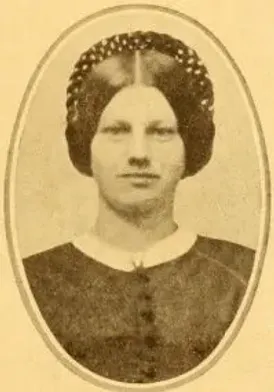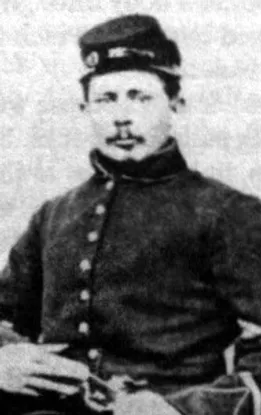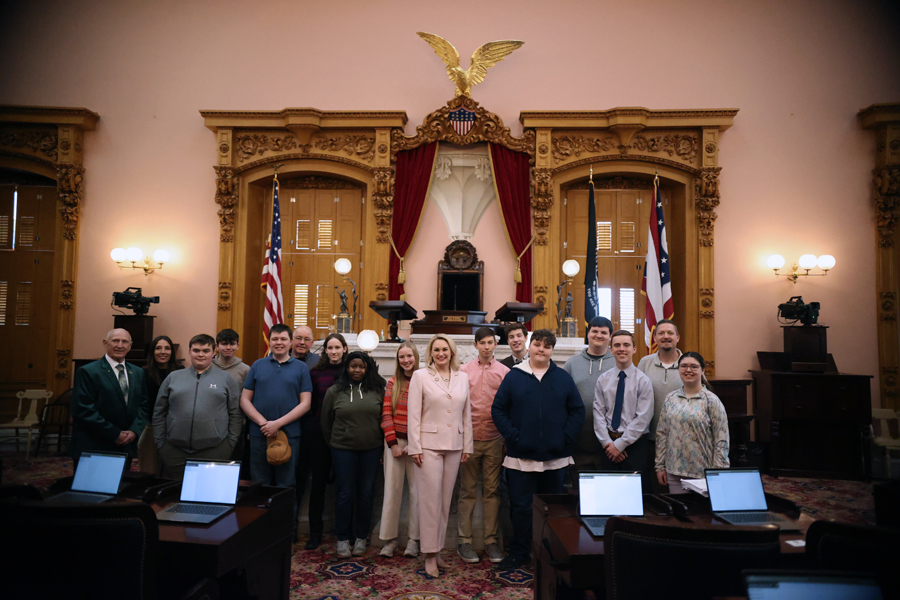With this article, we will begin a series of strange stories of civilians during the Civil War. The Civil War was a time of great tragedy for the United States and great drama, with over 675,000 deaths. Today, we will focus on a small, but poignant story, from the pivotal battle of the three-day conflict, in and around Gettysburg, in July of 1863.

Twenty-year-old, Mary Virginia, “Jennie” Wade was helping her mother knead dough for biscuits in her sister’s little brick home. Right amid the fighting she was struck down by a misdirected bullet of a Confederate soldier. Unknown to Jennie, her childhood sweetheart, Corporal Jack Skelly, was suffering with wounds inflicted during the battle of Carter’s Woods, from which he would soon die.

Jennie, the only civilian to perish during the battle, is remembered for her courage and bravery, at a time when she could have been hiding in the cellar like most of the town civilians, seeking shelter from lead flying in every direction. Instead, Jennie chose to help Union soldiers, who found retreat outside of the sister’s brick home, by bringing water and bread for those wounded and hungry.
On the morning of her tragic death, on July 3rd, 1863, in the pocket of the apron she was wearing, a photograph of Union soldier, Jack Skelly, was found. There are several different viewpoints held regarding the true nature of the relationship between Jack and Jennie. There is the belief that Jack and Jennie were intended to be married, but that their lives were both cut tragically short before they could be married. The other view suggests that Jack and Jennie were very close friends who grew up together, who may or may not have had a relationship beyond that.
Jennie’s sister Georgia McCellan always said that Jennie and Jack had become engaged in the spring of 1863, with secret plans to marry in September of that year, when Jack obtained a furlough from the Army.
On March 8th, 1862, Jennie writes, “I have grieved myself so much about you, for the last eighteen months, and I really think you are getting cold towards me, but Jack, never will my love change.” In that same letter, she responds to the idea that Jack may be staying in the service for five more years, and did not receive the information very well.
Her letters show in her own words, in the six letters that have survived, that she was in love with Jack and was waiting for him to return home from the war. However, there are other letters from Jennie that reveal to Jack that she had other suitors, which she did not like. It was only her mother who was trying to marry her off, to a soldier of wealth from the East coast. It is difficult to enter the thoughts and conversations of people, over 150 years ago.
But this we do know. Before the war Jennie and Jack’s close friend Wesley Culp went to Virginia to obtain work. When the war began Wesley joined a Confederate regiment and fought for the south.
In the early morning, of June 15th, 1863, Jack Skelly was one of the soldiers wounded and then captured by the Rebels in the Battle of Carter’s Woods, near Winchester Virginia. During his regiment’s attempt to retreat from the Confederates, Jack was struck by a mini ball, which went through his upper arm. He was taken prisoner and then brought to the Taylor House Hospital in Winchester.
On July 12th, 1863, 22-year-old Jack died from his wounds. In all probability, it was the negligence of his surgeon, that may have contributed to his death. It was eleven days after the battle in his hometown of Gettysburg had begun, and nine days after the deaths of both of his childhood friends, Jennie Wade and Wesley Culp.
One can only guess that Jack may have been too unwell to know of what had occurred between the North and the South, in the town of his birth, as well as the tragic fate of his two friends, both of which were killed during the battle of Gettysburg.
What took place after Jack was wounded is one of those strange happenings in war that cannot be explained. As Wesley Culp’s Confederate regiment began to move out toward Pennsylvania, Wesley stopped to check in on a fellow soldier at the Taylor Hospital before he left.
As Wesley was leaving the hospital room, he could not believe his eyes. There on the floor, lying on a bed of straw by the open door, was his close friend Jack Skelly of Gettysburg. As he knelt by his friend, Jack opened his eyes in amazement, seeing Wesley.
They had not seen one another since Wesley left for Virginia three years ago. What are the chances of Wesley finding his friend Jack among the hundreds of wounded lying about in that hospital.
Although Jack could not write, he wanted to get a letter to Jennie and his mother in Gettysburg saying that he was wounded but alive and hoping to recover. Jack asked if he could dedicate a letter. According to Jennie’s sister, Georgia, the message that Wesley was carrying back to Gettysburg from Jack, was to include a marriage proposal for Jennie.
Wesley said his goodbyes and placed the letter in his coat pocket to give to Jack’s mother. At this time Wesley had no idea that his army would end up in Gettysburg.
During the battle in Gettysburg, the Confederates controlled the town, which gave Wesley an opportunity to visit Jack’s mother behind Confederate lines and tell her about the letter from Jack. When asked for the letter, Wesley refused saying he promised Jack to give it to Jennie personally, however, he did share some of the information contained in the letter.
On July 3rd, around 8:30 am, outside of Gettysburg, at the crest of Culp’s Hill, Wesley Culp was killed and buried in an unmarked grave with the other confederate dead.
Contained in Wesley’s coat was the letter dedicated from Jack to Jennie and his mother. Several days later, his family tried to locate the grave site to retrieve the letter. Before the Confederates left Gettysburg, Friends of Wesley stopped by his parents’ house and informed them of his death and where they could find the body. They never recovered his body or the letter.
Love, during War, has always had a way about it in producing weird and unusually human-interest stories. The true story of the romance between Jack Skelly and Jennie Wade is one of many.
In the next article we will continue to relate true human-interest stories of the Battle of Gettysburg.
Facts for this article were from Ken Hammontree’s book “There Was a Time”.










